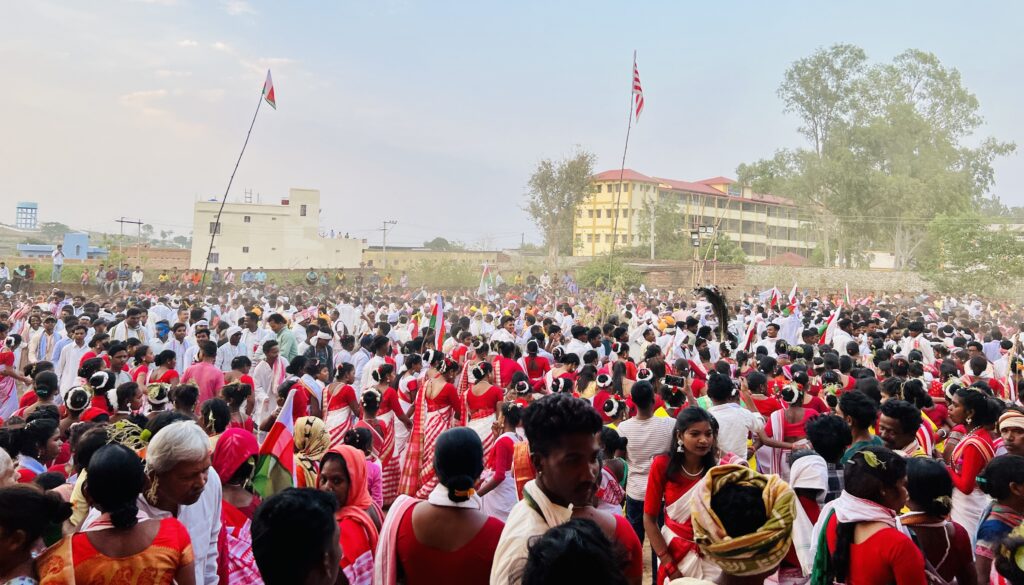This poem emphasizes the importance of recognizing that health is an inseparable part of Indigenous culture. It speaks to public health professionals and policymakers, urging them to deeply consider indigenous arts, festivals, and culture when collaborating to create programs and policies for these vulnerable communities. To highlight the importance of improving cultural competence in Indian health systems, it draws inspiration from 'Sarhul,' a spring festival or the festival of flowers, celebrated by many tribes like the Oraon, the Munda, and the Ho of Jharkhand.
The Sarhul festival marks the beginning of spring. During this time, tribal communities offer prayers to the spirits of their ancestors and perform rituals of gratitude toward nature. It is a time to reflect on the past year, express thanks to the spirits for maintaining the world, and pray for a prosperous year ahead.

In the photo, tribal communities are performing the Sarhul dance, celebrating with Sal tree flowers (Shorea robusta) tucked behind their ears. Connected in a human chain, they move in circles, dancing to the rhythmic beats of traditional instruments like the dhol and mandars (bifacial drums).
Speaking of Indigenous Health
And how slowly we realise
that health is one of the petals
of the flower of culture.
Predicaments arise
when you look at the two apart.
You can never arrive
in spring with a torn flower.
You never get a boundless picture
if you only memorized public health theories
but have never felt the opulence
of sal flowers tucked
behind your ears on Sarhul.
*Sarhul is an indigenous spring festival in Jharkhand, India.


©2024. Made with (❤︎) in Yachayninchik